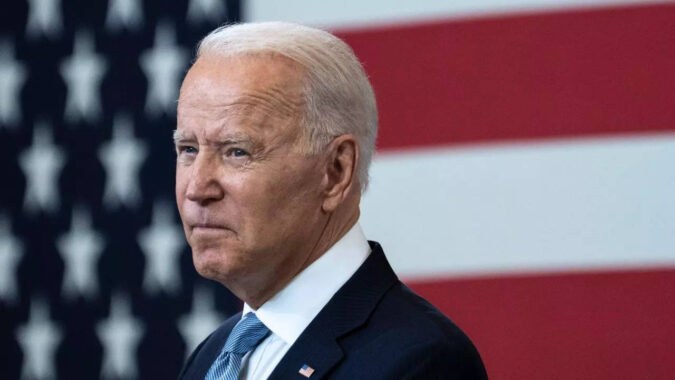On the Republican side, Donald Trump, 76, remains the frontrunner for the GOP nomination, with polls showing him well ahead of other potential challengers like Florida governor Ron DeSantis.
The combined age of the presidential candidates (156 years; 158 by Election Day) will be the highest of any two contestants in US Presidential history, and arguably in world electoral history, a geriatric milestone in a country whose median age is 38.
In a three-minute campaign video he released on Tuesday, Biden urged voters to let him “finish this job” warning that MAGA extremists threaten the freedoms he was fighting to preserve.
“When I ran for president four years ago, I said we are in a battle for the soul of America. And we still are…That’s why I’m running for re-election,” he said.
Americans are far from enthused about the rematch. A recent Yahoo/YouGov poll showed 38 percent of respondents saying they felt “exhaustion” at the idea. Another 23 percent expressed “sadness and fear.”
A separate Reuters/Ipsos poll shows even Democrats have reservations, with nearly half of respondents saying Biden is too old to run. He will be 86 if he wins and finishes a second term. Trump will be 82 if he wins and finishes in 2028. Term limit restricts US President to two terms, even if they are not consecutive.
Biden’s approval rating is also low, in the low 40s.
Biden’s choice to retain Kamala Harris as his running mate — despite grumbling in the party — and his appointment of Julie Chavez Rodriguez as his campaign manager, suggests he is again banking on a coalition of Blacks, Latinos, and the working class to win a second term. A blue collar champion from his days as a Senator, he is scheduled to speak to union workers on Tuesday about plans to help manufacturing and the middle class.
Sitting Presidents historically have had few challengers within the party and have had little problem securing the party nomination.
Nominal challengers to Biden in 2024 include Marianne Williamson, a self-help author and former spiritual adviser to Oprah Winfrey, and Robert Kennedy, a nephew of former President John F. Kennedy, and a prominent anti-vaccine activist.
Part of the American exhaustion also has to do with the length of the campaign, with more than a year and half to go before election day on November 5, 2024.
The slow rolling process begins with party caucuses and primaries in January 2024, but the principals typically wade in months before in order to fine tune their messaging and line up finances in a costly exercise that costs billions. An estimated $ 4.1 billion was splurged in the 2019-2020 election cycle.
The early declaration also exposes Biden to even greater scrutiny than in 2019-2020, when the pandemic allowed him a low-key campaign without the rigors of extensive travel. But as the sitting President he will also have the advantage of using the White House pulpit and official event to make his case.
Still, age — and age-ism — is certain to be a major issue over the next 18 months. Already, critics of geriatric leadership in America — where the former Soviet Union and China were once mocked for the same — have dredged out past Biden campaigns when he made age an issue against older opponents.
In 1972, Biden, then a 29 years old challenger against 63 year old incumbent Republican Senator Cale Boggs, who had been persuaded to run by the party, ribbed his opponent saying, “Cale doesn’t want to run, he’s lost that old twinkle in his eye he used to have.”
Republicans have been careful not to attack Biden on the age issue given Trump’s own vulnerability on the matter, but the former President has not been shy of mocking his mental acuity and his propensity for gaffes.Watch Joe Biden announces he is running for re-election, framing 2024 as a choice between ‘more rights or fewer’
